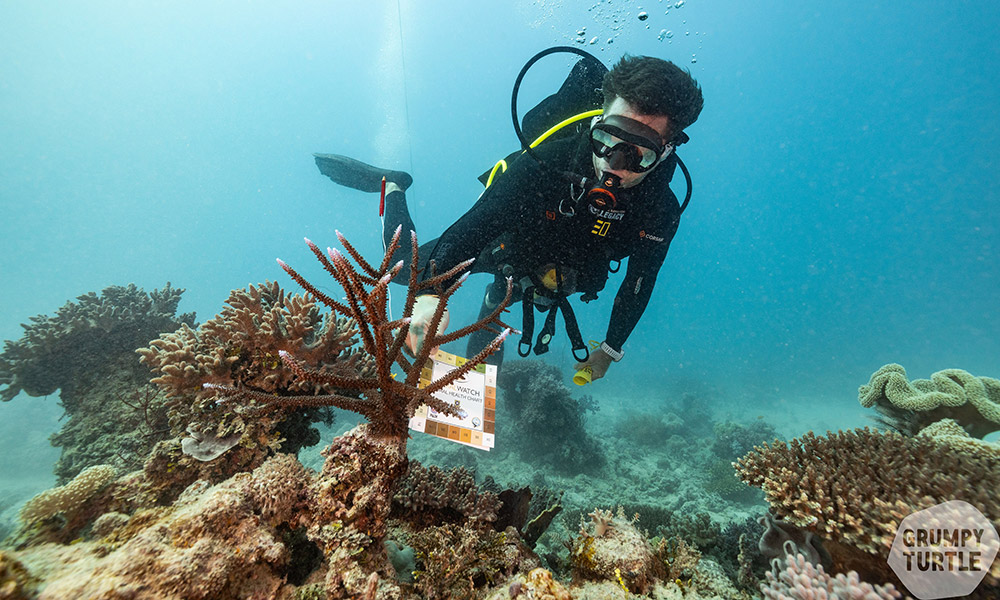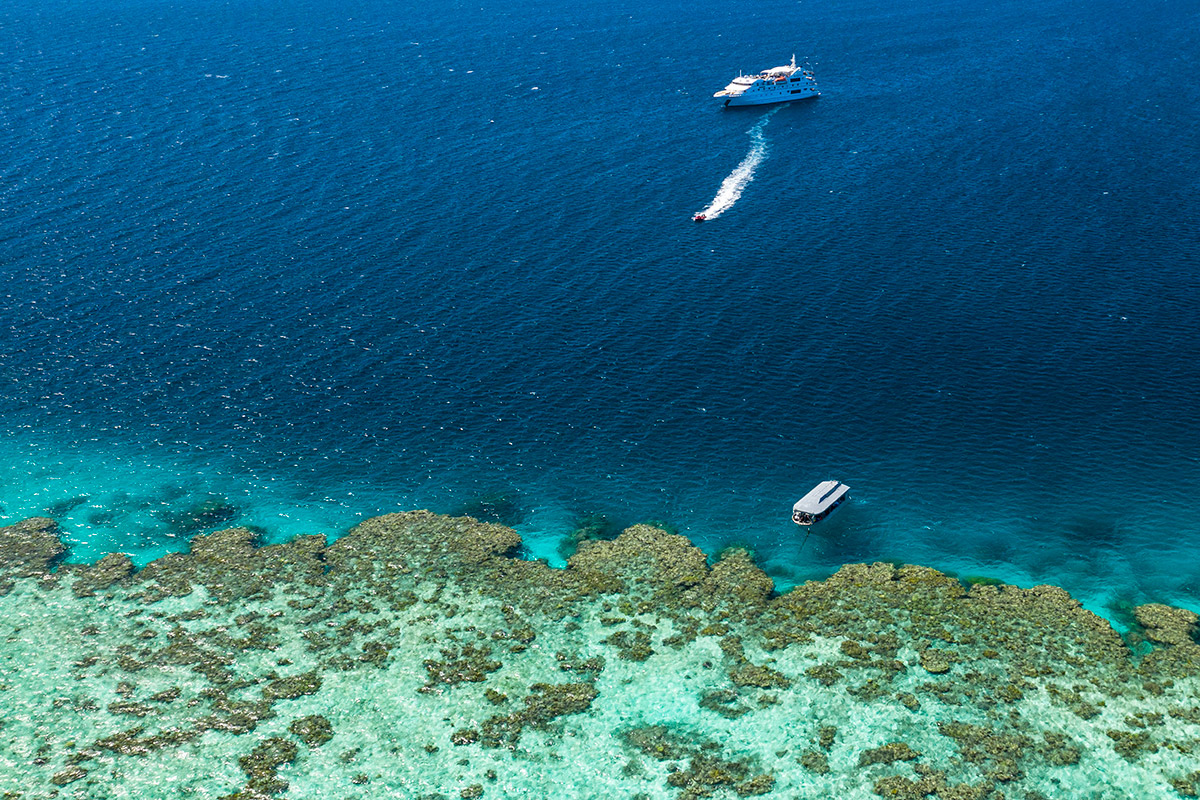It’s often said that travel is the only thing we can buy that makes us richer. Not in a financial sense, but in life experience. Travel is an opportunity for us to step outside of our comfort zones, learn about the world around us, and perhaps even learn something about ourselves at the same time too.
A recent Coral Expeditions cruise on the Great Barrier Reef allowed guests to do all these things – plus it added to our scientific understanding too.
Pioneers in Australia’s expedition cruise scene, Coral Expeditions have been showcasing our waters less travelled, like the wild Kimberley Coast and vibrant Coral Sea, for almost 40 years now, with a fleet of small ships capable of accessing areas larger ships could only dream of.
More than just watching nature go by from the pool deck, their trips are a chance for guests to fully immerse themselves in the history, culture, and wildlife of each location along the way. A highly qualified expedition team and visiting experts are also on hand to bring each destination to life, with included shore excursions and educational lectures all part of the experience.

Coral Discoverer at Mackay Cay. Credit: Grumpy Turtle
“It’s about creating a meaningful connection,” says Coral Expeditions Commercial Director Jeff Gillies. “Our expeditions have always had a strong science component to them. It’s not just a one-dimensional experience where guests briefly glance at a leaflet either. They get to step off the boat, to experience things up close, and really spend time in each location too.”
Taking that immersion even further, Coral Expeditions recently embarked on their first ‘citizen science’ expedition out to the majestic Great Barrier Reef. Setting sail from their home port of Cairns in July, the unique 10-day trip allowed guests to experience one of the world’s greatest natural wonders, while making a meaningful contribution to its future at the same time.

Dr Dean Miller from GBR Legacy monitoring corals. Credit: Grumpy Turtle
A collaboration with Australian Geographic and Port Douglas-based not-for-profit Great Barrier Reef Legacy, the ‘Citizen Science of the Great Barrier Reef’ voyage saw scientific specialists join forces with conservation-minded guests for two vital conservation projects: observing an aggregation of rare dwarf minke whales and collecting corals for a ‘Living Coral Bio Bank’.
Timing was everything on this expedition. The waters of the Northern Great Barrier Reef host the only known predictable aggregation of dwarf minke whales in the world, with the second smallest baleen whales visiting the warm waters for just a few short weeks each winter.
Gillies says it was just a perfect alignment for everyone involved. It allowed guests to have a deeper connection with the reef, helped scientists expand their knowledge and understanding of the migratory dwarf minke whale population, and resulted in an additional 50 species of coral being added to the Bio Bank – bringing its total to 85.

A dwarf minke whale. Credit: Grumpy Turtle
The brainchild of Great Barrier Reef Legacy, the Bio Bank is in its early stages, but its goal is to become a state-of-the-art ‘coral ark’ – collecting, studying, and safeguarding fragile corals from the Great Barrier Reef, which are so vulnerable to the changing weather conditions. With more than 600 hard and soft corals of various shapes, sizes, and colours found on the reef, it’s an ambitious project but one will have a lasting impact.
Coral Expeditions are already mapping out new citizen science expeditions, including coral spawning on the Great Barrier Reef in 2022 and the solar eclipse in Australia’s Northwest in 2023, but their regular itineraries still offer plenty for the inquisitive traveller too.
“History, culture and environment are really the key pillars for us,” says Gillies.
“We build our expedition team to support those in each location. We might have anthropologists or political/cultural experts on our trips up to Papua New Guinea. If we’re in the Kimberley, we’ll have geologists and archaeologists to explore the rock formations. Most of our expedition leaders and crew hold qualifications in marine biology or sciences too.”
.jpg)
The group onboard Coral Discoverer. Credit: Grumpy Turtle
The small ships play a key role in the experience too. The Coral Adventurer joined the fleet in 2019, while the Coral Geographer arrived earlier this year. With shared daily excursions and only 100 guests on board, they foster a real sense of community and connection.
Want to enjoy a small ship cruise of the Great Barrier Reef, Tasmania or Kimberley? Click here.




